
Impact report
Celebrating 2 years of the Specialist Centre for Public Health



Impact report
Celebrating 2 years of the Specialist Centre for Public Health

It has been an incredibly exciting two years since we launched the Specialist Centre for Public Health delivered by Newcastle University and Partners.
Our second birthday is a perfect opportunity to share our impact across our growing remit, along with a reminder that all of our work is underpinned by public and community partnerships and research inclusion.
I would like to thank all of the local authorities, Health Determinants Research Collaborations, public health academics and public and community contributors, and everyone reading this report, for working with us to shape, support, and further develop public health research outside the NHS. Thank you also to our knowledgeable and supportive Advisory Board, who continue to push us to strive for better.
None of the work you will read about in this report would have been possible without our dedicated team, including our three satellites in the Midlands, the South East and Yorkshire and Humber, who all work with such enthusiasm to drive forward our shared vision.
Thank you all, I hope you enjoy reading and that you can all feel collectively proud of this impact report.

Professor Ashley Adamson Director



We continue to build our network, and the team have attended events and facilitated networking across the country.

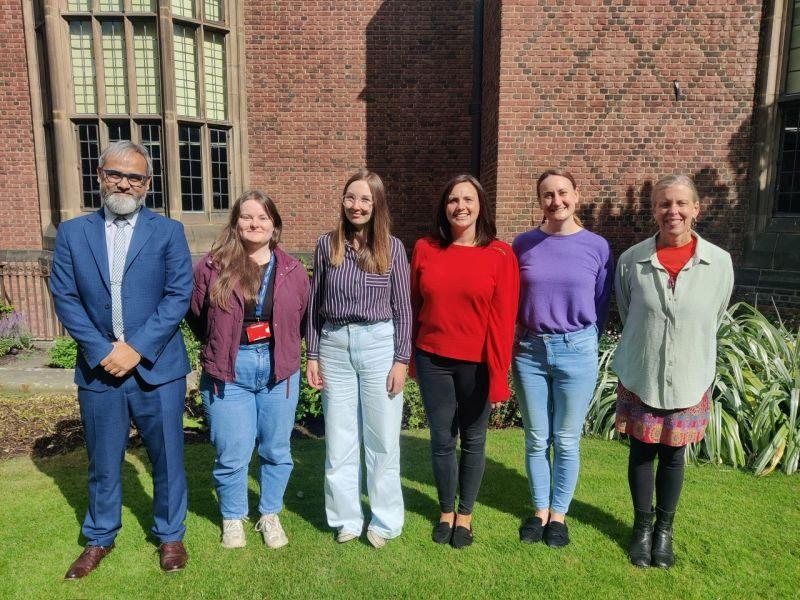
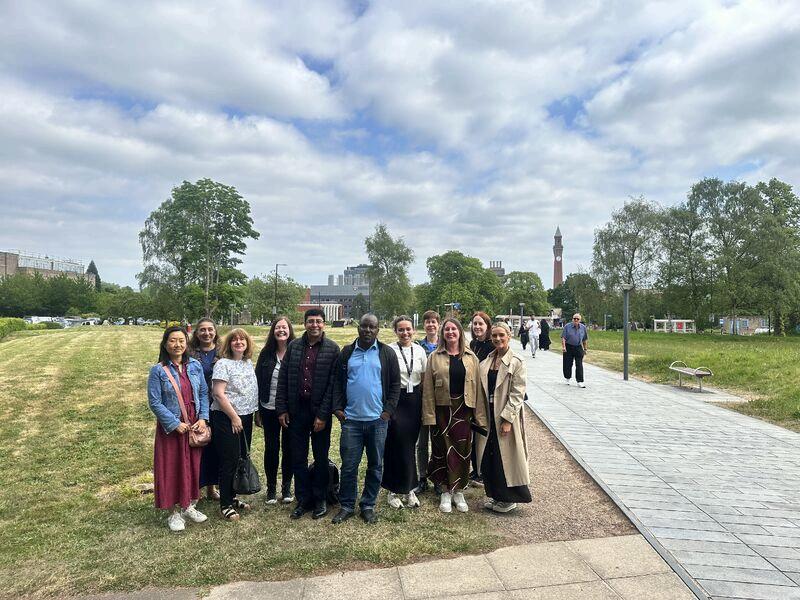
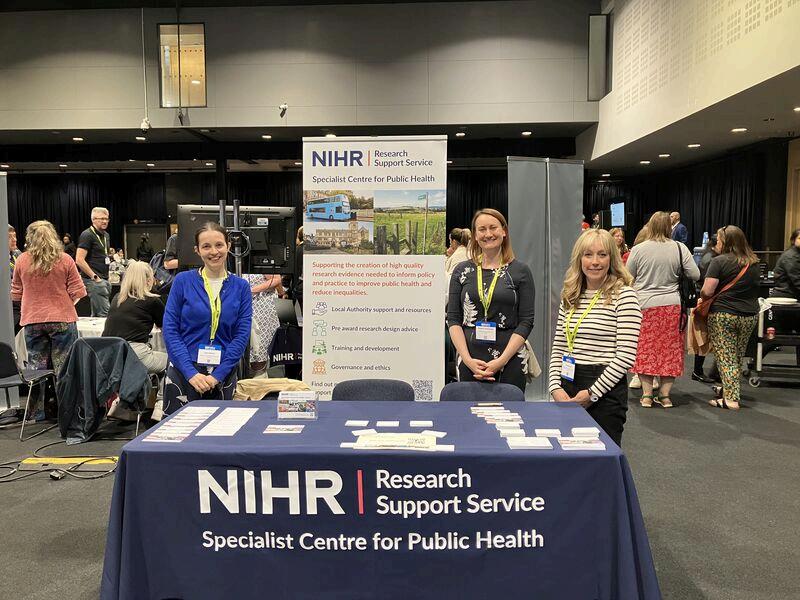

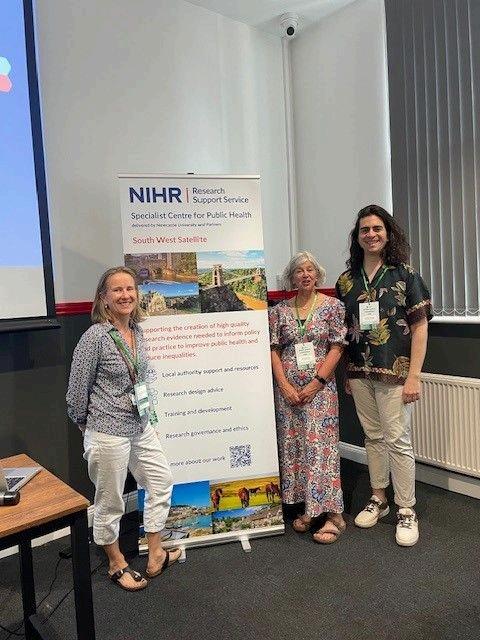





Local authority support and resources

Public and community partnership funding award pilots investing £20K for local authorities to explore ways of involving diverse people and communities in public health research



Local Authority Research Practitioner (LARP) awards across 82 local authorities totalling over £4.6M investment

Public Health Engagement Lead (PHEL) awards totalling over £200K investment
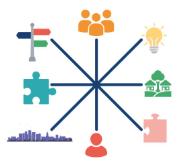


Grassroots awards (including 3 pilots) with an investment of £110K into individual research careers

We launched 2 satellites in the Midlands and the South West, and continued to build on the success of our first satellite in Yorkshire and Humber.

Working in collaboration with local authorities, HDRCs and LARPs we have:

created explainer animations published a glossary of research terms reviewed and shared over training resources delivered training webinars to over delegates
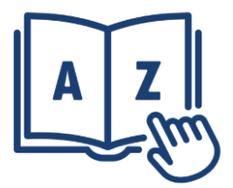
Research governance and ethics
Completed projects and resources: definition of local authority research project and accompanying decision tool
produced research governance and ethics explainer documents

local authority research governance and ethics scoping exercise
local authority research governance and ethics prioritisation survey

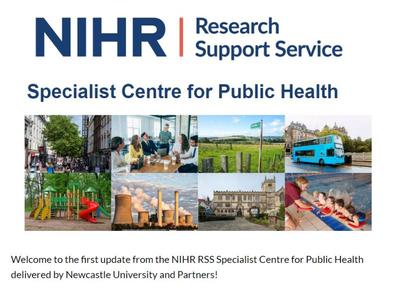
newsletter subscribers
reactions comments reposts newsletters issued open rate click rate
Our methodologists across England have supported
research projects and answered research design enquiries.
They have also delivered workshops and webinars for local authorities.


The map to the right shows our LARP coverage across England.
Local authority with LARP funding
Currently no LARP funding

We awarded our first pilots in January:
Pilot 1 – A colleague from London Borough of Hackney Council spent 3 months supporting an NIHR programme of research led by University College London
Pilot 2 – Sophie Beckett from Birmingham Museums Trust (part of Birmingham City Council's Public Health Team) at the early stages of her research journey, completed a Master of Public Health module and research training
Pilot 3 – A voluntary, community and social enterprise (VCSE) colleague from Nuvo Wellbeing, completed an academic placement to assist the analysis of quantitative data, and public involvement training
We held our first open funding call in April and made awards:
to VCSE organisations to local authorities


Our PHELs have had an incredibly busy year, in the last months they have:


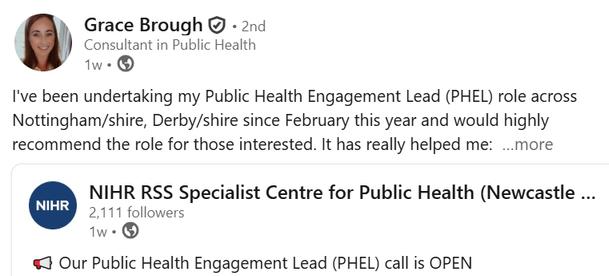



Attended a public and community partnerships and research inclusion session to share learning and areas for development.
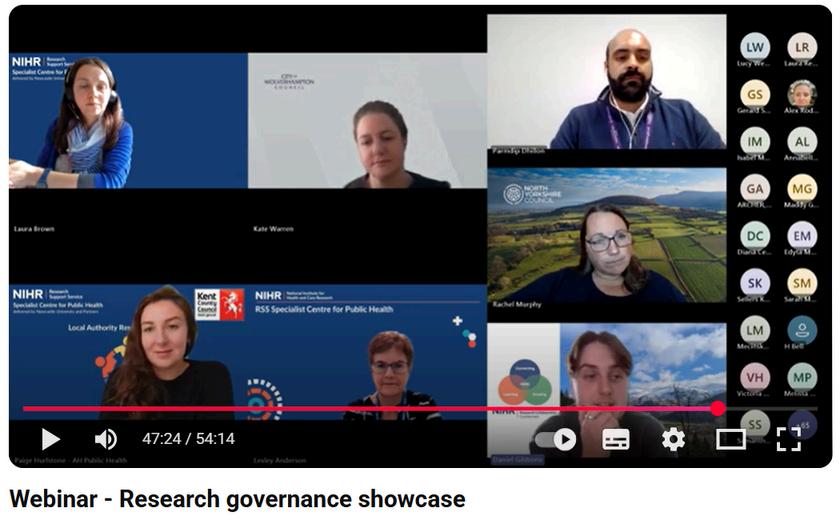
The map to the right shows our PHEL coverage across England.
PHEL host local authority
Local authority covered by a PHEL
Currently no PHEL coverage
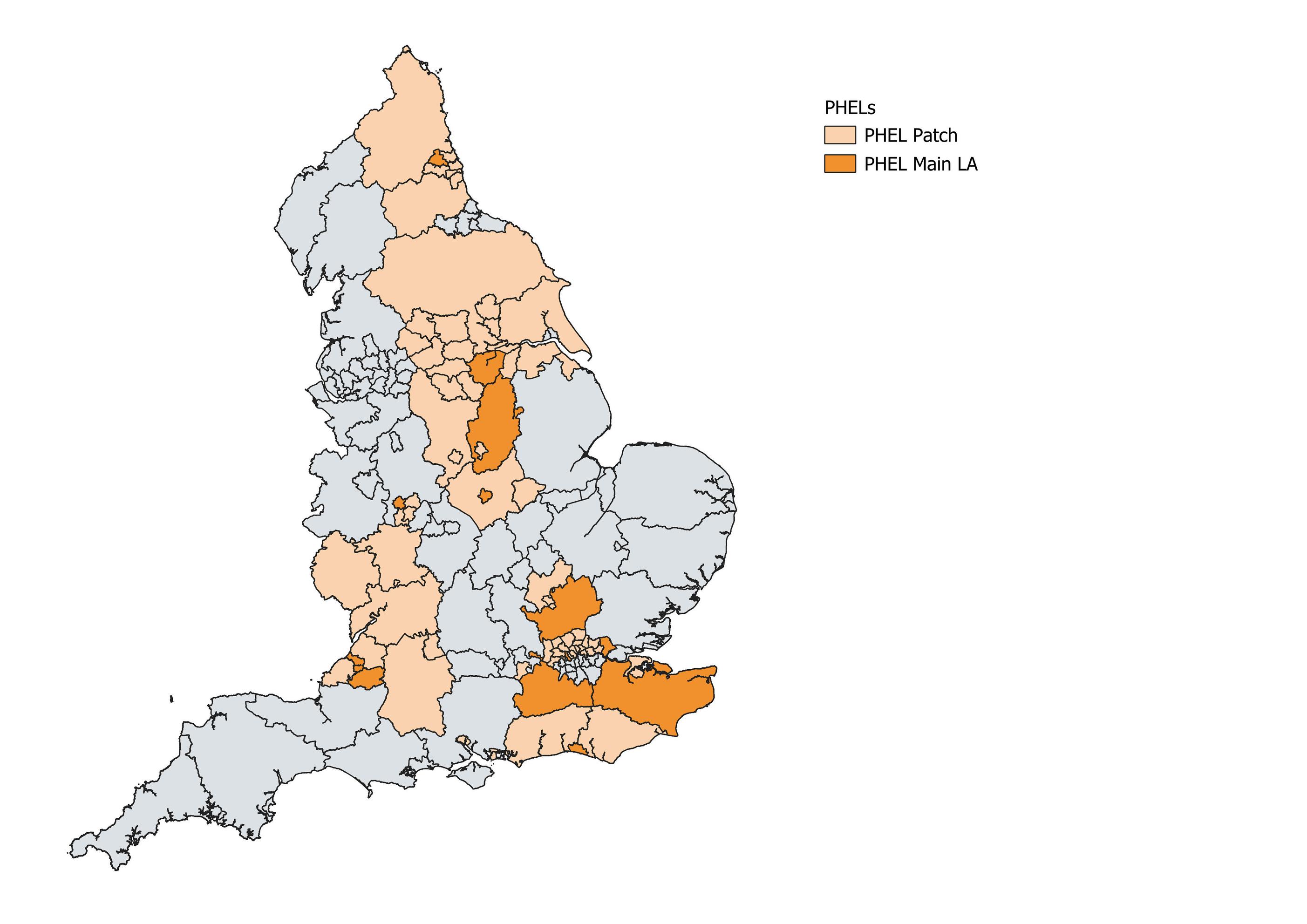

The map to the left shows our LARP and PHEL coverage across England.
LARP or PHEL coverage
Currently no LARP or PHEL coverage

Priority areas identified were: research language and landscape areas of research interest and collaborations using, managing, and sharing data for research costings, finance and publication/dissemination of research
We are taking projects in these areas forward.

It’s been a busy year for our methodologists across England, together they have:



Supported research projects for funding calls including:
Predoctoral fellowships
Doctoral fellowships
NIHR Three Schools Prevention Programme
The impact of local climate change adaption on health and health
inequalities
Veterans’ health
Greenspace and natural environments
Commercial practices and gambling
Modelling the effects of public policy on e-cigarette use
Men’s mental health
Continuing areas of research interest

Delivered webinars as part of our training webinar series.








local authorities
community organisations


academic institutions
other organisations
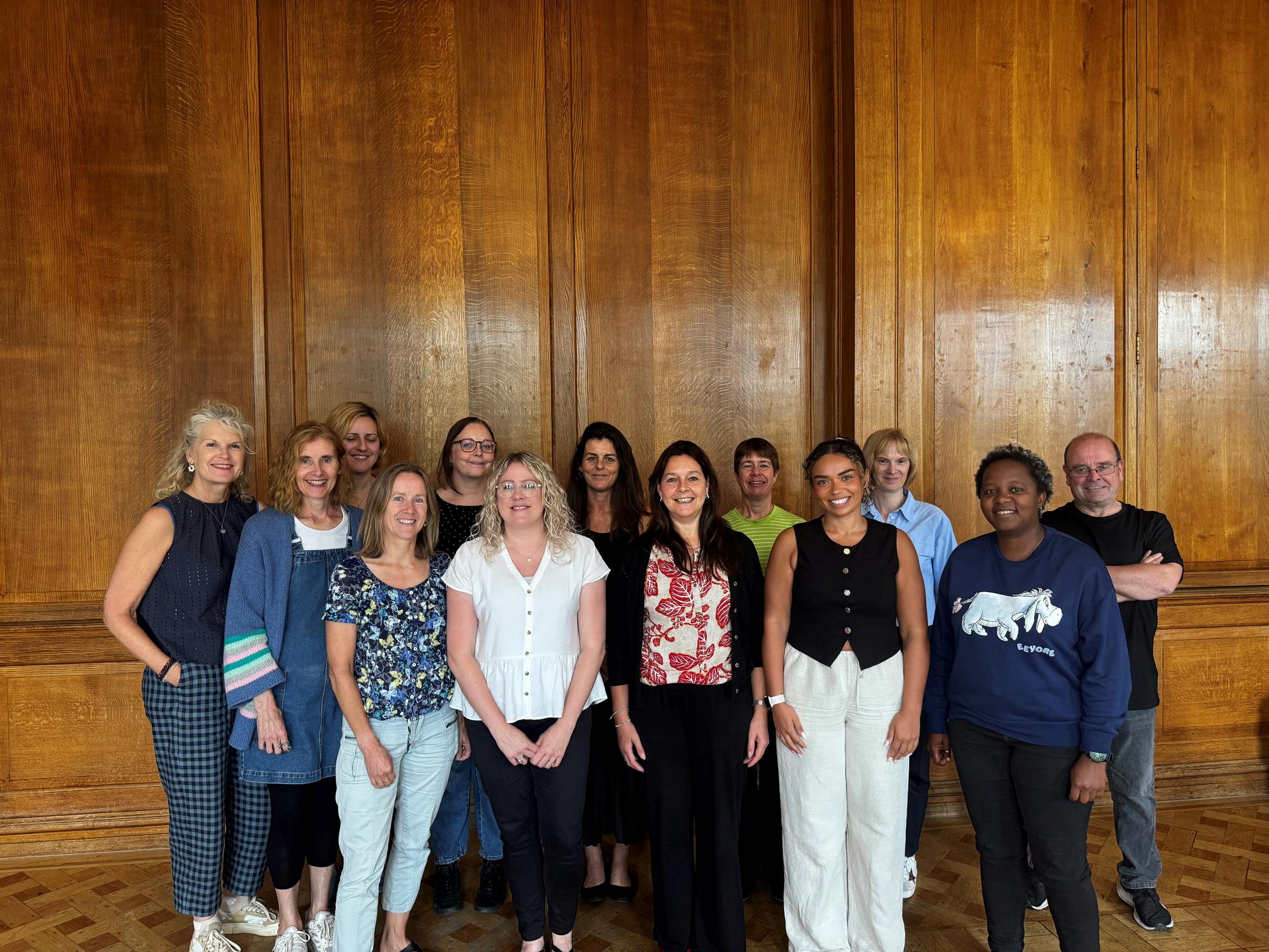
Worked closely with our public contributors, who have supported: mock interview panels






public involvement and engagement resource reviews plain English summary reviews public and community partnership drop-ins
We are delighted to announce the launch of a 2-year research delivery pilot programme, funded by the Department of Health and Social Care, to strengthen research delivery support for public health research outside the NHS.
The research delivery pilot addresses a gap in the current research landscape by supporting studies that fall outside the remit of the NIHR Research Delivery Network (RDN).
The pilot will:
understand the needs of researchers working in non-NHS public health settings
co-design a new delivery support service with researchers and stakeholders expand pre award support, including study placement and feasibility test post award delivery support, helping researchers to implement their studies
This work will be a close collaboration across NIHR infrastructure, particularly with the RDN. Together, the aim is to create a joined-up research support offer spanning both NHS and non-NHS public health settings.
By September 2027, the research delivery pilot will give recommendations on how a future service could be structured, scaled, and hosted.
If you’d like to find out more about this work, please get in touch with us: nihr.rss.publichealth@newcastle.ac.uk.



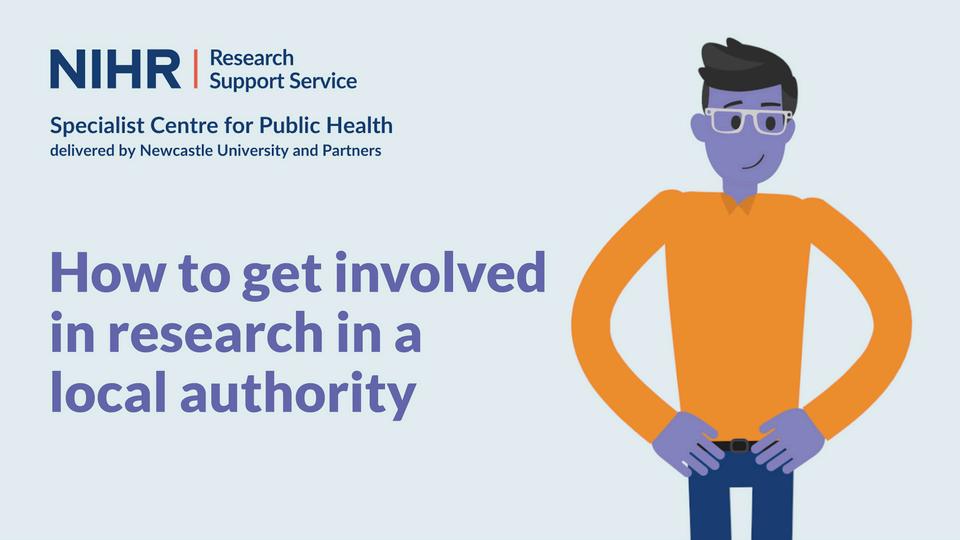
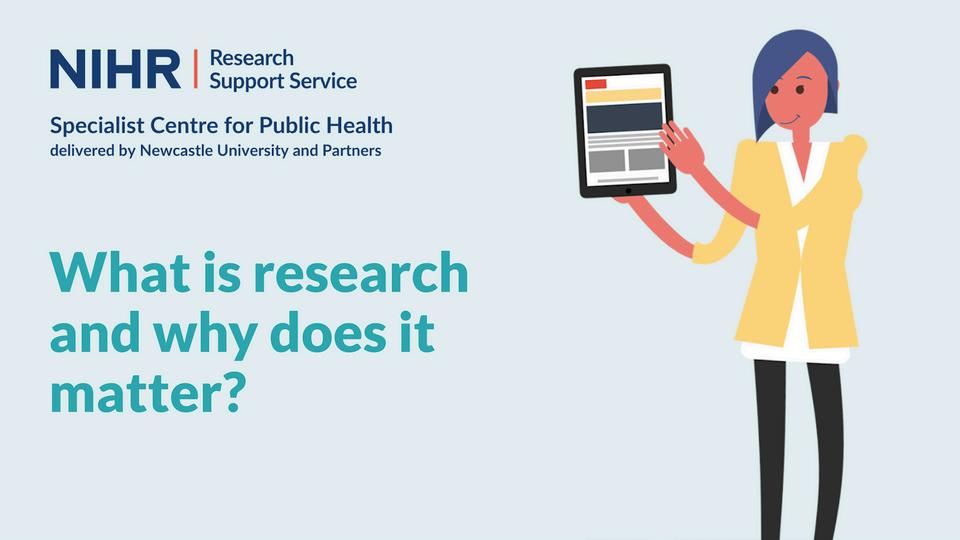

In March, we launched 3 explainer animations for local authorities. Collectively, they’ve been viewed over 1700 times. The animations help explain research and the wider determinants of health in a way that we can all understand and relate to. Thank you to the training and development task and finish group who worked with us to produce them, which includes membership from Health Determinants Research Collaborations, local authorities, SCPH colleagues and public and community contributors.
Whether you’re an experienced researcher, or considering your first potential project, there was something for everyone in our training webinar series.
Since we launched the series in March, over 850 people attended 10 webinars. They have been viewed over 1400 times on YouTube.
We launched a glossary of research terms developed in conjunction with HDRC Medway public contributors. The glossary has been viewed over 200 times.
We have reviewed and shared over 100 bespoke and alreadyavailable guidance and training resources.
Our public and community partnerships (PCP) Advisory Board was established in November, it is the main way we involve lived experience and public and community voices in our work. The Advisory Board includes public contributors from across all 9 English regions. Thank you to our public contributors for your enthusiastic involvement.

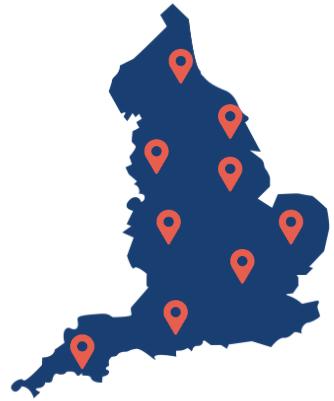
We are over halfway through a 1-year pilot in which public contributors co-chair the PCP Advisory Board. Pictured, our co-chairs Samina Begum (left) and Rosemary Nicholls (right). The role was co-created to allow greater central involvement and power sharing.
Public contributor involvement in LARP funding call
Pete Latchford was the first of our public contributors to be part of a LARP funding panel in January.
“My inclusion in the funding panel helps normalise the involvement of public contributors. Some of the panel also commented how good it was to have a public perspective included.”

A co-creation group of local authority colleagues and public contributors helped shape our PCP training and development offer. Working together we hosted successful PCP training webinars on demystifying PCP, evaluating PCP and ethical practice in involvement in March, May and September.

NIHR RSS Specialist Centre for Public Health
NIHR RSS Specialist Centre for Public Health (Newcastle University and Partners) Join our mailing list to hear more about our news, events and funding opportunities
This impact report was produced by the NIHR RSS Specialist Centre for Public Health delivered by Newcastle University and Partners.
Data cut 18 September 2024 to 17 September 2025.